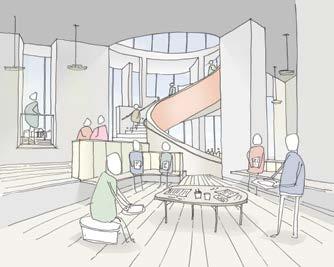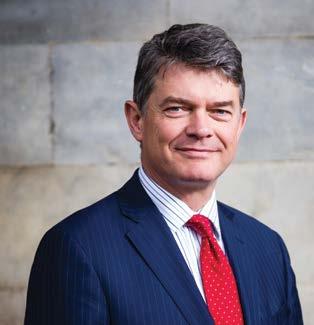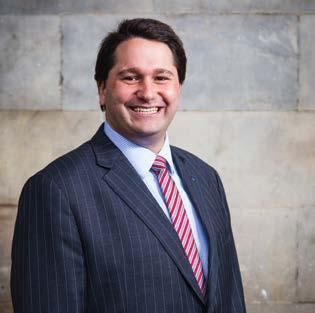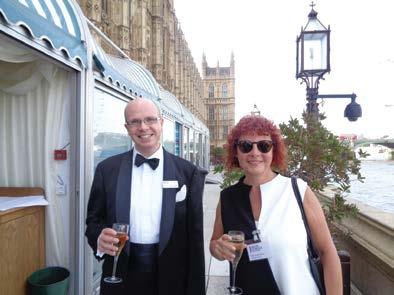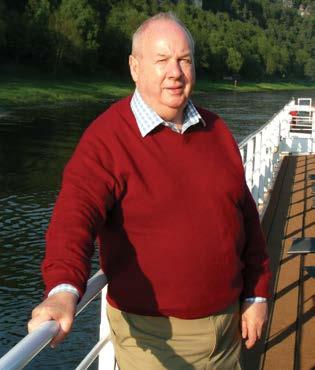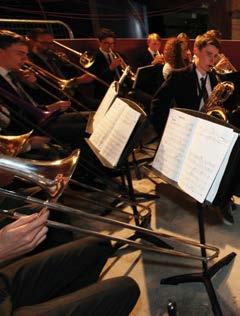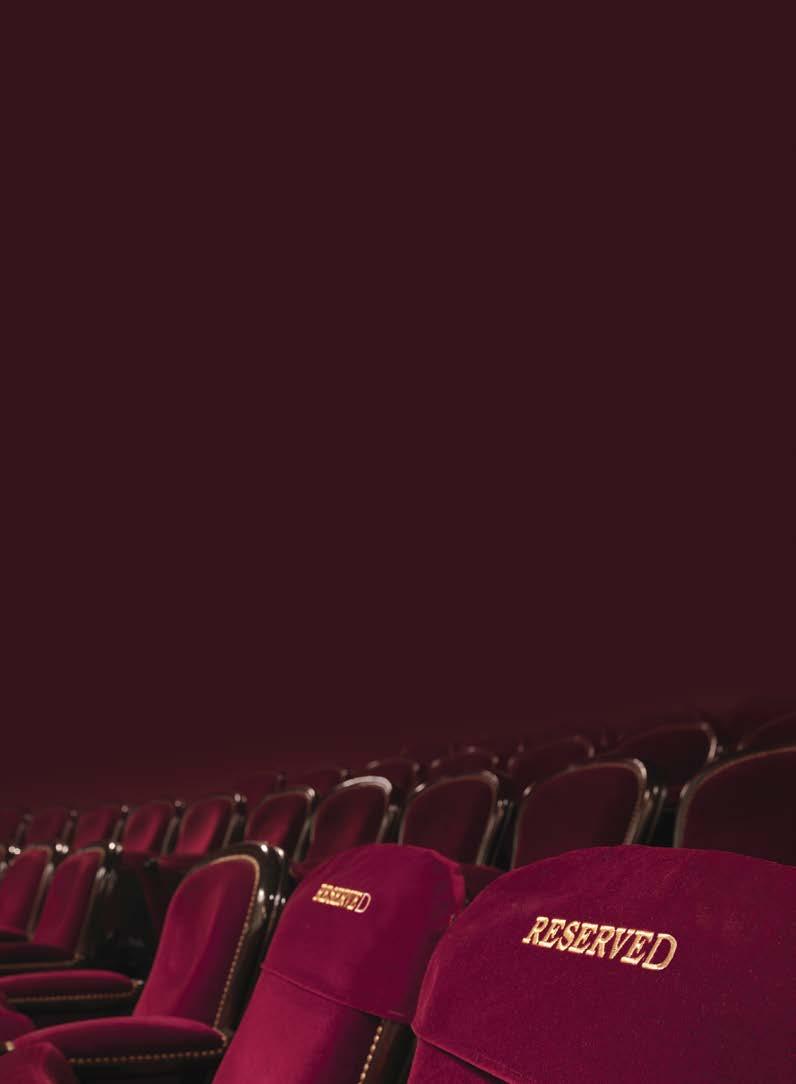
6 minute read
Performing and Visual Arts: An Overview
Art & Design
Art teaches you the skill of innovation. Cognitive thinking, problem solving and blue-sky thinking are its very definition. Art is to try and foresee the future, to create a solution, identify its faults, and continually improve that process.
Artists reflect themselves when they create a painting or a sculpture, and this practice is eye-opening for our pupils. As children grow up everything is defined in terms of black and white, good or bad, and Art lends itself to the idea that not everything is as easily explained as that. It forces us to examine ourselves and others, and in so doing promotes empathy.
This is the biggest year in education in the last 25 years: there’s the new Higher, the new Advanced Higher, and in Art there is also the new L4 and L5 curriculum. The new qualifications require a great deal of 3D work; currently, if we have 15 pupils in a class it’s very difficult to get them all working in different areas, as we simply don’t have enough space.
With the new centre will come far greater autonomy for our pupils to choose how to express themselves on a daily basis, from fine art to ceramics and everything in between. They will also benefit hugely from the cross-disciplinary opportunities of the new building, particularly in fashion and textiles, which is an area of crossover Art shares with Home Economics. With the new space and resources of the centre of excellence, we will be able to fully facilitate our pupils in their artistic endeavours, giving them the opportunity to explore niche specialisms suited to their particular creative requirements.
Culinary Arts

Life is all about food; we don’t just eat to live, we live to eat! Culturally, food teaches us so much about ourselves and others, in terms of geography, national identity, religion and communication.
Our Health and Food Technology pupils are given the opportunity to gain practical, life-long learning skills which they will benefit from enormously in the future. Culinary Arts give them a wonderful opportunity to embrace their creativity, as well as to advance their own technological capabilities. In this day and age, it is especially necessary that pupils learn the benefits of a healthy, nutritious lifestyle, along with the valuable transferable skills that our discipline provides. Learning to cook for themselves and others is a skill which will prove vital throughout their lives.
Career opportunities are bright within the hospitality industry, for those who have the talent and dedication to thrive. One of our former pupils, Katie Brown, is currently running one of Gordon Ramsay’s restaurants in America, after achieving the position of head pastry chef at The Savoy Hotel in London.
At the moment, however, there is a real lack of workspace at the School. Our facilities are stretched to capacity by even a reasonably-sized class of pupils; for example, a class of 16 have to work within a classroom with only 7 sinks, which is too small for purpose. As well as this, our resources are limited in terms of cooking facilities themselves, not to mention storage space for ingredients and equipment. The centre of excellence will transform this, offering our pupils the opportunity to thrive within a fully resourced, cutting-edge culinary environment.
Mr. Adam Kerr Head of Art & Design Mrs. Lesley J. Ross Head of Health and Food Technology


The new centre of excellence will provide a cutting-edge interdisciplinary home for the four creative disciplines: Art & Design, Culinary Arts, Drama, and Music. Here our Heads of Department talk us through their subjects, and explain the importance of the new facility to the future of creative education.
Drama
Drama as a discipline is thousands of years old; it is one of our most ancient forms of storytelling, and remains a crucial way of bringing people together in a community. It is vital in nurturing the part of our brain that needs to be engaged in a creative capacity.
The study of Drama gives pupils an expressive voice and helps them learn how to negotiate with others, as collaborative group work is essential. There’s also a lot of evaluation; watching, sharing, processing information, that is inherent in our courses. Career-wise, we’re not only training the next generation of performers, but also theatre technicians, designers, film-makers, legal and medical professionals, along with communicators throughout all areas of industry and business.
At present we only have one fully resourced Drama space, in terms of all the technical areas: lighting rig, sound, a black box space. This is difficult with our course requirements, which include teaching pupils how to use sound and lighting, since often timetabling logistics mean that two classes are scheduled simultaneously. We also have no wet room facilities for set design, which is a big part of our courses.
Geographical location is really important as creative arts facilitators. The Drama department is currently on the other side of the School site from Art and Music, its two major interdisciplinary colleagues. The new centre will solve all of these problems. It will more than double our space, giving us a black box theatre as a main teaching space, a white box studio for dance and other classes, a dedicated classroom, and, of course, the main Auditorium. Both the Junior and Senior School will be able to stage more productions, and due to the proximity of other creative departments we will further develop our musical theatre, set design, and prop & costume making.
Music
Music is an expression of culture, of the very nature of culture. We express our national identities, our personal identities and our group identities in music; unlike a painting or a book, it’s something that everyone can experience together at the same time. It is a celebratory art form that enables us to connect, reflect, and to communicate.
Our Music pupils not only learn how to stand up in front of other people and project themselves as individuals, but also train their ability to work with others collaboratively and fruitfully. Learning how to work as part of a team is a vital aspect of music-making, where everybody is able to make suggestions and compromise for the good of the group as a whole, whilst taking responsibility to pull their own weight. Learning the intricacies of musical notation and understanding how written music is supposed to sound also gives our pupils an eye and an ear for detail, which are crucial for further study and careers in later life.
At the moment we can’t accommodate any pupils who want to practice on their own during the school day because all our rooms are used, all the time. Because we have so many pupils who learn instruments, we have over 400 individual lessons taking place every week, and lack the space to have any more pupils practicing. This means we’re at full stretch in terms of any pupils wanting to take up an instrument, and are rapidly reaching the stage whereby we will have to turn people away from learning their instrument of choice.
The new centre will change all this. We will have properly designed acoustic spaces for everything, with enough storage space to support full learning as well as extra-curricular activities. In a state-of-the-art, purpose-designed performance space, I know our pupils will raise their game to play to the quality of the surrounds.

